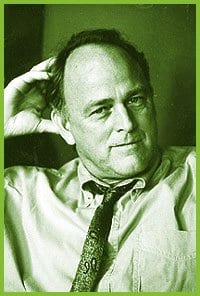The winds rattled the windowpanes as I settled down to watch the late news. There he was, framed by a huge flag, speaking in short phrases, punctuated by that curl of his lip as if thinking, “What a good man I am.” He spoke of terrorism, the need to protect his country’s citizens, drawing upon courage because America is a nation with a mission. Then it was on to the next news tidbit, creating the illusion I am in touch with global happenings.
Next morning, as I munched a muffin, CBO Morning played a different clip from Bush’s address, one not mentioned the night before. It spoke of enduring values “instilled by fundamental institutions – families, schools and religious congregations – the unseen pillars of civilization.” A strong America, he stressed, valued the institution of marriage as the union of a man and a woman. “The same moral tradition that defines marriage also teaches that each individual has dignity and value in God’s sight. It is also important to strengthen our communities by unleashing the compassion of America’s religious institutions.”
I was flabbergasted. Why, given the debate around the marriage issue in Canada, did the television media not cover this part of the address? A day later, I was listening to a presentation on a resolution to have sexual orientation included on the international treaty on human rights.
“There are six international treaties on human rights,” explains Suki Beavers, senior advisor on human rights with the Ottawa-based Action Canada for Population and Development (ACPD). “None of them refer to sexual orientation. In fact, countries interpret the treaties differently. Some nations suggest sexual orientation is implicit in the treaties.”
Nonetheless, at last year’s annual meeting of the United Nations Commission on Human Rights in Geneva, Brazil put forward a resolution that abuses on the basis of sexual orientation constitute human rights violations. The resolution sought to ensure that governments around the globe would protect the rights of all.
“The resolution caught everyone off-guard,” says Beavers. “But it is not surprising that Brazil put forward this resolution. It has an active civil society with strong feminist and gay and lesbian movements.”
She went on to explain that Brazil’s resolution threw the countries and organizations that supported the resolution and those that opposed it into a frenzy of debate and behind-the-scenes lobbying. Motions and counter-motions were put forward as the discussion grew more heated.
“You never really know how a country will vote until it does,” Suki says. “Most countries take their lead from those in power in their capitals. A number were clearly opposed – the Holy See, many from the developing world. Others, such as the United States, appeared to work in the background to defeat the motion. The European Union, which negotiates as a bloc, and the US held bilaterals on the resolution, excluding other nations.”
Canada, she said, played a substantial supportive role. The government was clear in its support, working actively to pass the resolution. When the chairperson moved to adjourn the session and so postpone consideration of the resolution until 2004, Canada moved to extend the session to permit full discussion. However, as the chair had moved his motion first, it was voted on and passed, shutting down debate until this year.
“Non-governmental organizations (NGOs) play an active role at these meetings,” adds John Fisher, co-director of ARC International, a Canada-based group that deals with international LGBT issues. “NGOs push for change. While last year’s delay was unfortunate, it allowed time to develop a global NGO strategy on the resolution.”
Fisher, previously executive director of Egale Canada, started ARC with Kim Vance, also with Egale, in June of 2003. Last December, ARC and ACPD participated in a conference of gay and lesbian NGOs. They secured funding from several Canadian government departments, from Sweden, the Ford Foundation and the Steelworkers’ Humanity Fund to help fund the gathering, to assist delegates from developing countries to attend. Thirty-four gay and lesbian activists came together.
“It can’t be just activists from privileged countries that participate at conferences and in commissions,” Fisher points out. “It is critical to build international networks so gays and lesbians can effectively work with their governments to protect the human rights of all their citizens. By playing a monitoring role, NGOs will ensure the language of any resolution is strong, substantial and truly meaningful.”
Unfortunately, he added, the current resolution does not address the need to protect transgendered people. Many states are even less aware of transgender issues than they are of sexual orientation.
“We continue to do good work, even those who don’t enjoy full freedom,” Fisher says. “We established a steering committee of 10 people to pressure their capitals to be more supportive. We are actively seeking more Africans and Asians to join in the effort. There are now 10 participants on a listserv from Kenya, Nigeria, South Africa, Uganda, Zimbabwe and Egypt.”
The next meeting of UNCHR, Mar 15 through Apr 25 in Geneva, will be crucial if the declaration of human rights is to become truly universal and inclusive.

 Why you can trust Xtra
Why you can trust Xtra


